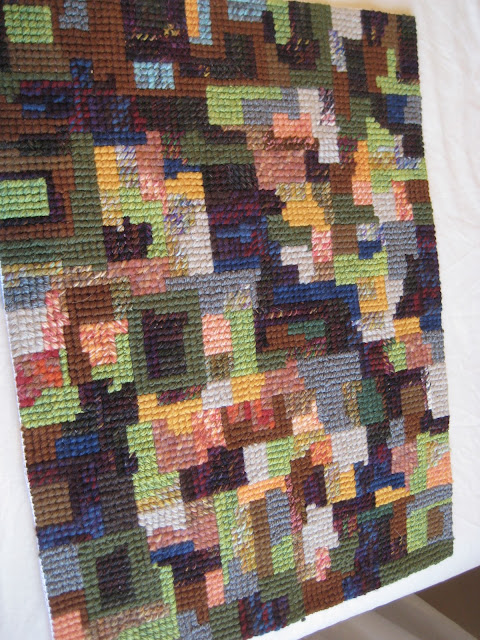Hilar is Spanish for "to Spin". Today I thought that I would play around with a tutorial for the blog. Maybe I can get some of my Spanish readers interested in spinning too!
First it was pretty inexpensive and a good value. It is good value because all of the parts are interchangeable with the Ashford Joy there is a lot of versatility in the kinds of yarn you can spin on this wheel. Since it was so inexpensive I was able to "pimp it" and I have all of the whorls sizes as well as the new Ashford flyer.
Secondly This wheel is small, and lightweight (12lbs/5.4Kg). I knew, when I bought it, that there was a possibility that I would have to move to Europe in the near future and I wanted something easy to move around the room, and that does not take up much space in a tiny European apartment.
Ok so here is a semi tutorial on how I "block" my yarn. You can take substandard spinning and turn that into amazing yarn if you 'finish' the yarn right. Also you take ruin a perfectly beautiful handspun with poor finishing techniques. I am not going to go into all of the finishing techniques today, just blocking.
First off, I was making a three ply yarn for socks. I got some BFL in a swap recently in two different colorways and they went so well together I decided to spin them up and ply them together. Plying evenly is very important, if you have question about plying go and get anything Judith McKenzie has written (or said on a video) about it and follow her to the letter.
After I have plied the singles together I skein the yarn by winding it on my niddy noddy.
Then the yarn goes for a soak for about 10 minutes in luke warm water and a little of wool wash. Make sure that you do not soak different colored skeins at the same time, dye can leak during this process.
After the yarn has soaked, drain the water from the basin, then lift the skien out supporting as much of it as possible, and squeeze the water out. Do NOT wring the water out. At this point I now go to my shower, arrange the skien in my hands so that I am holding the middle of the skien and whack the skien against the shower wall. (Two things to note here: One - it is a good idea to have only your arm in the shower at this point and have the rest of you outside a curtain or door as it is a wet process. Two - try not to bash you hand into the wall - it hurts.) I then take the skein out of the shower put my hands through the long part of the skien and tug (making sure first all of the strands are going the skein wise direction - otherwise tangles will ensue. Then I fold it the other direction and repeat the whacking process.
This "Wash and Whack" process not only will open up and 'full' the fibers after spinning (making them fluffier) it will help energy equalize around the skien. Meaning that if you have any overspun areas the extra twist can jump to a less spun area. This simple process of beating your yarn can give beautiful results - AND work out frustrations.
With this process I now have two skeins of perfectly balanced yarn I know this because they are not twisted back on themselves in the skein.

When I do a 3 ply I often end up with extra singles, so I used them to practice Navajo plying which I am extraordinarily bad at. The above photos were taken AFTER the wash and whack process. The skien does not hang straight, there is so much twist that it has to go somewhere and the skien twists back up on itself.
Back to the nicer yarn. I have some shower curtain rings and the are frightfully useful to hang skien of yarn to dry on. In the US I used to hang skeins off of my shower rod to dry.











































